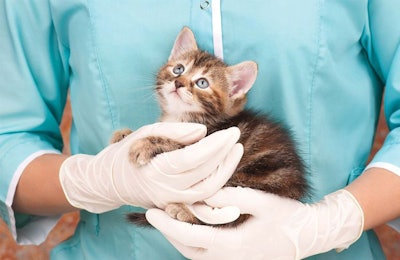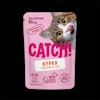
At least six cats, five of whom are now dead, may have contracted tuberculosis after eating frozen, raw pet food sold in the United Kingdom. Another seven cats were exposed to pathogens. Scientists found evidence that Mycobacterium bovis, bacteria that causes tuberculosis in animals and humans, may have contaminated Britain-based Natural Instinct’s Wild Venison formulation raw cat food and led to the outbreak.
“Upon investigations, our results provide compelling, if circumstantial, evidence of an association between the commercial raw diet of these cats and their M. bovis infections,” wrote researchers in their Journal of Feline Medicine and Surgery publication on the tuberculosis outbreak. “At this stage, as cases are continuing to be diagnosed, there is insufficient evidence to ascertain if this is a single, one-off event or an ongoing problem.”
History of raw cat food connection to UK tuberculosis outbreak
The outbreak started in August 2018 in five households. Five of the six cats infected with tuberculosis died or were euthanized. Veterinarians still are investigating other cases.
M. bovis normally infect cats that live outside at least part time and get some of their food from hunting. However, in the 2018 UK tuberculosis outbreak, all the cats lived strictly indoors. The researchers ruled out other sources of the bacteria, such as wildlife or rodent contact, access to raw milk and exposure to infectious humans.
Natural Instinct Wild Venison raw cat food was the only observed common factor among all five households with tuberculosis-infected cats. Among those cats, the progression of the disease was often rapid, and the animals needed extensive surgery or had to be euthanized. Other cats in the same households also showed evidence of infection by M. bovis. However, either these cats didn’t show outward signs of the infection or those symptoms weren’t reported to veterinarians.
University of Edinburgh researchers led the study.



















